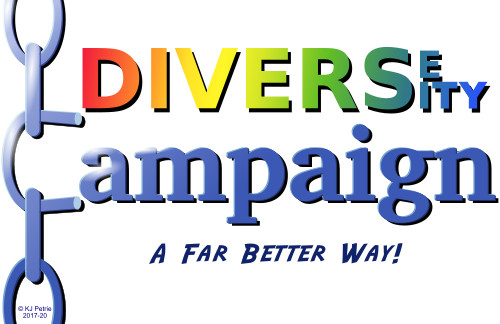Opinion
7th August 2023
The dual significance of Farage’s debanking
With the resignation of two CEOs and Nigel Farage being told he can keep his accounts at Coutt’s it might seem the scandal over his “debanking” is over, but the issues it raises are not just about one man.
In fact, there are two issues here, and they both have implications for Diverse Diversity.
The first is the question which has received most media attention; that people can lose their accounts because a bank disapproves of their politics or lifestyle in some way. That any business can prejudice the interests of its customers for such an irrelevant reason is absolutely shocking. My politics and lifestyle have no relevance to those with whom I trade. I should be entitled to embrace causes, express opinions, associate with whom I choose, or take part in any private or public activity without being treated unfairly in relations entirely unconnected to my activity. Even under the current Equality Act, for all its flaws, political beliefs are a protected characteristic. Diverse Diversity would extend that further, by judging the appropriateness of the grounds rather the specific category to which a person belongs, so protecting all without fear or favour. It matters not to what extent society as a whole might approve or disapprove of someone. We are entitled to be different, not to go with the flow. It is people taking a different perspective which often leads to progress.
However, there is a more significant issue which also goes to the heart of democracy, and that is the concern that money-laundering regulations now disincentivise business with public servants, thus making life difficult for those society ought to encourage. One of Mr Farage’s possible explanations for his treatment before he obtained information otherwise, was that he might be a Politically-exposed Person (PEP). I have encountered that one myself. After downsizing my house it emerged I have a similar name to a PEP and I could not receive the proceeds of the sale until I had declared I am not a king, president, army chief, senior civil servant, MP, or local councillor, among other things. This might seem a bit of a joke, until it happens to someone who does hold public office and finds himself or herself disadvantaged by regulations. Moreover, at least some businesses refuse to deal with PEPs because the costs of carrying out the necessary checks make doing so less profitable and more risky if they get it wrong — far easier to have a blanket no-PEP policy.
The obvious problem with that is; who will stand for public office if it could result in being refused goods and services on the basis one is too expensive a customer? PEPs need to live too.
From a Diverse Diversity viewpoint this is interesting. After all, if dealing with certain customers will incur costs and risks, isn’t that a relevant basis for refusing their business or charging them extra? That is arguable, and therefore a new equality act based on relevance rather than specific grounds would not protect such people.
However, if we look further we can see that the unfairness is actually being applied in a different place. It is not so much the individual customer who is being treated unfairly here, but the businesses seeking to offer services.
Government and regulation is the business of governments. It is governments who are tasked with protecting the public and enforcing the law. Loading that responsibility onto others at their own expense instead of on society as a whole is a form of arbitrary taxation. Governments around the world work to make money-laundering harder and it is right that individuals with greater opportunity for corruption face greater scrutiny. No honest person would argue against that, but when the purpose of that scrutiny is to protect the public as a whole, it is unreasonable to load the cost of that scrutiny onto individuals, whether public servants themselves or those with whom they seek to deal. Crime prevention is a public good and should be paid for at public expense. Making regulations for banks or other businesses to enforce at their own expense is clearly unfair, both to the banks and to those customers affected. After all, having the opportunity to deal corruptly does not automatically make a person corrupt. If it did, governments could have no reputation at all, for all have the opportunity to misuse their position. We must trust that most don’t.
It is easy and cheap to legislate to impose costs on others, but it is not necessarily wise. If PEPs are to bear the costs of public protection in their personal and family life, either directly or indirectly, which honest person would seek public office? Might it not just price the honest out of public service, leaving it open only to those who calculate they can make more out of it than they stand to lose? Do we really seek, as a society, to deter people from serving the community and nation in that way? It is a perverse way to reduce corruption if it makes honest life more difficult.
We need to do something about this before it is too late.

